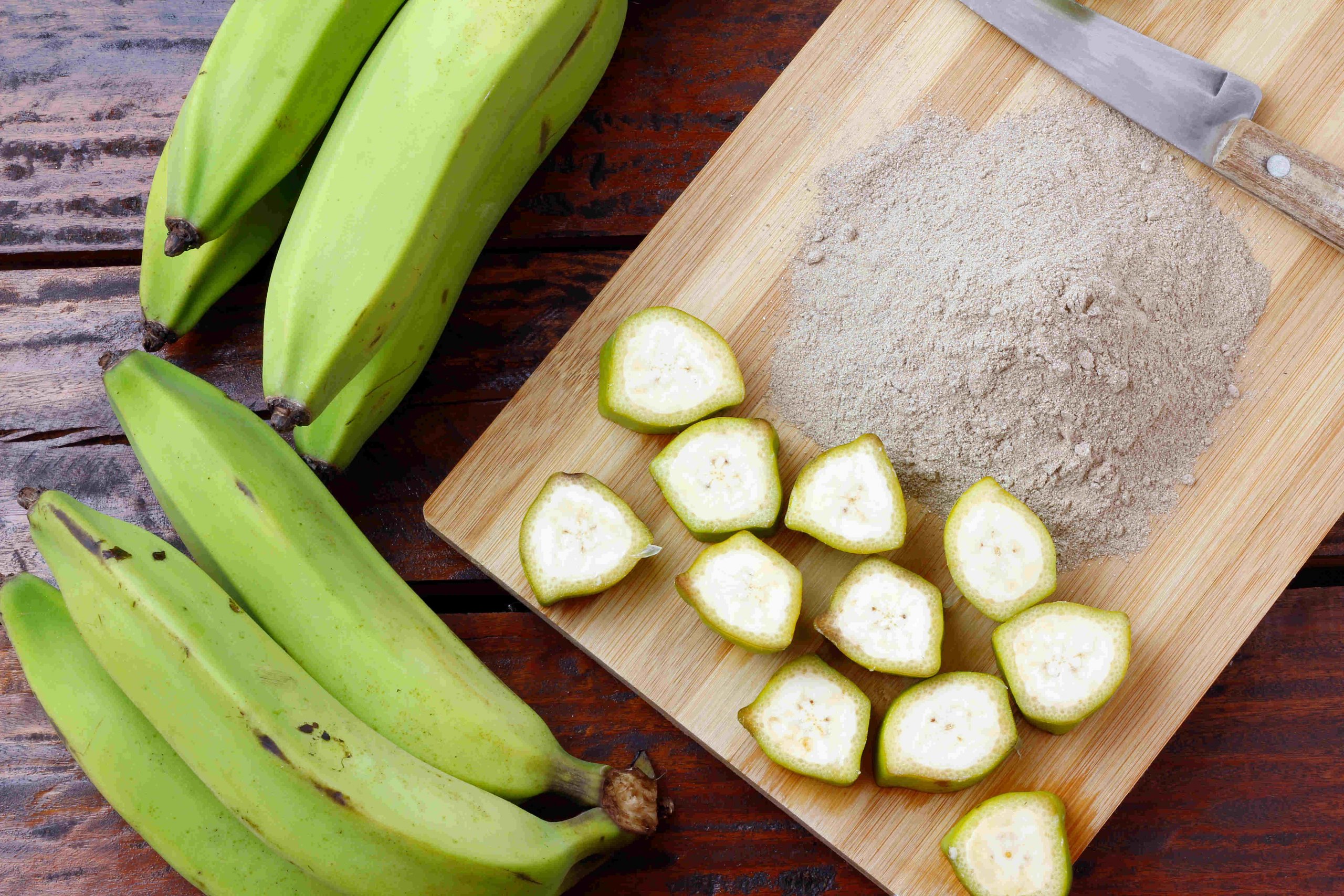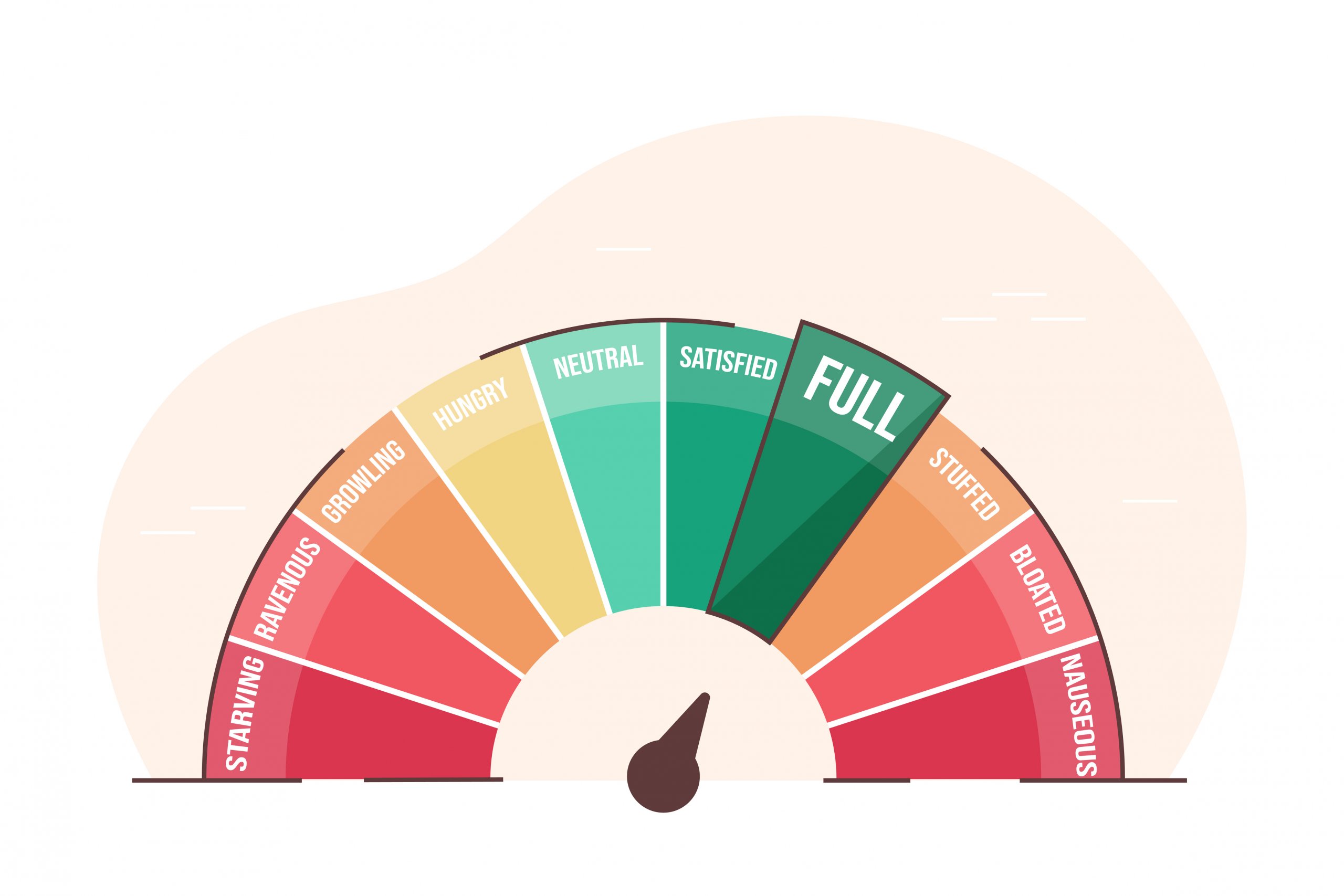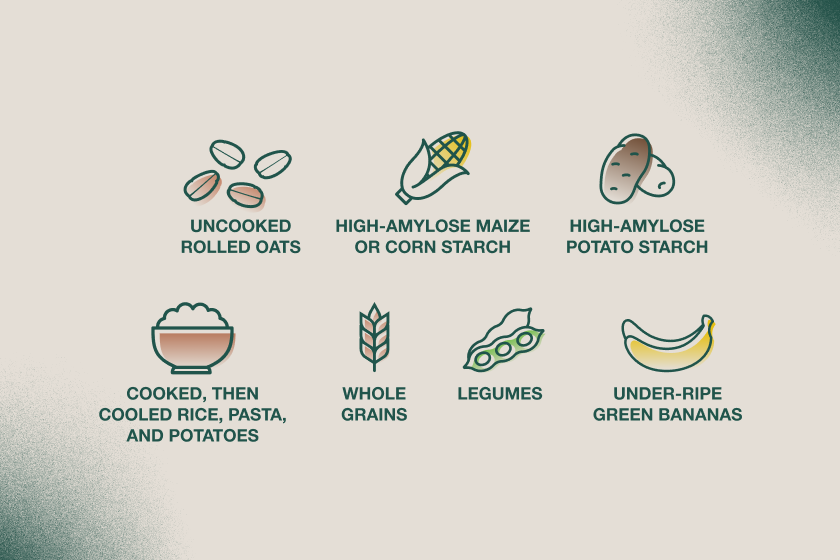READ TIME: 7 MINUTES —
If you’re looking to lose weight, then resistant starch could help.
Okay, true. If you’re looking to lose weight, you’ve likely heard this sort of promise before. You’ve seen all the headlines and hit-pieces, the ‘do-this’ diets and the ‘don’t-do-that’ diet-tribes. From keto to paleo, vegan to vegetarian, everyone seems to have an opinion on the matter. And what might work for some doesn’t always work for others.
The truth is: weight loss is complicated. As much as we might like, there’s no silver bullet solution or magic pill. Losing weight is a confusing, sometimes frustrating, sometimes rewarding, always long and personal journey filled with ups and downs — followed by more ups and downs.
But one food source with some intriguingly promising signs for promoting weight loss — and more than 200 scientific studies seeking to understand its full potential — is resistant starch.
What is Resistant Starch in the First Place?

Resistant starch is a type of carbohydrate and prebiotic fiber that’s resistant to digestion in the upper intestine. Because of this, resistant starch doesn’t spike blood sugar in the same way other carbohydrates can. Instead, it travels mostly intact all the way through to the lower intestine, where gut microbes feast on it and produce a series of short-chain fatty acids (SCFAs) like butyrate.
The release of butyrate and other metabolites is where the health-boosting magic happens. Health benefits of resistant starch include:
- Better blood sugar control [1]
- Improved digestion [2]
- Enhanced energy [3]
- Reduced inflammation (through the production of butyrate) [4]
- And yep — promotion of weight loss [5]
There are five different types of resistant starch, each of which varies in terms of its chemical and/or cellular makeup. And there are dozens of food sources that contain this unique prebiotic fiber, including:
- Whole grains (including steel cut oats & high-amylose corn)
- High-amylose potato starch
- Cooked, then cooled rice, pasta, or potatoes
- Beans and other legumes, nuts, and seeds
- Green bananas
No matter the type or the source, the common thread of resistant starch is this: It resists early-phase digestion. This creates a prebiotic effect in your gut. As the microbes in your gut feed on and ferment the starch, this unleashes all sorts of gut-balancing and good-for-you benefits throughout your body.
Can You Use Resistant Starch for Weight Loss?

Survey says… Yes! Well, probably. In truth, many of the studies around resistant starch and weight loss are more in the realm of correlation than causation. But there are still a few super interesting ways in which resistant starch might help promote weight loss.
First off, resistant starch actually contains fewer calories. That’s right — compared to regular starches, resistant starch typically has only two and a half calories per gram, compared to four calories per gram for regular starches. [6] Because our bodies don’t immediately digest RS, this means it doesn’t directly turn into energy, which means its caloric value is reduced.
Of course, the algebra behind metabolism and weight loss is more nuanced than simply calories-in, calories-out. But resistant starch also shows encouraging signs for improving a few other key factors related to metabolic health and weight loss.
Here’s how:
Resistant Starch Boosts Satiety

Put simply, resistant starch takes up space. But unlike, say, a man-spreader on the subway, the way in which RS takes up space is actually a good thing.
For one, it’s filling. Potatoes, rice, beans, and whole grains aren’t exactly puffs of air. They’re dense. And yet not calorie-dense! So, when you eat RS, you’re almost tricking your body into thinking it’s full. It’s like the best type of infomercial ad: “Get completely full for half the (caloric) price!”
Resistant starch also cuts down on cravings from a chemical perspective, too. When gut microbes feast on resistant starch, they produce butyrate. Butyrate is one of the key fuels for the cells lining the gut. And these cells in turn make a hormone called GLP-1, which is a blockbuster chemical when it comes to weight loss. In fact, GLP-1 was recently approved by the FDA to treat diabetes, blood glucose control, and weight loss. [6]
Of course, you don’t need man-made drugs to experience the benefits of GLP-1. Your body can produce it naturally if you feed it the right things. And the right things are — yep, you guessed it — high-fiber foods like resistant starch. In fact, resistant starch has been shown to produce more butyrate than any other dietary fiber. [7]
So, resistant starch promotes weight loss by taking up space, cutting cravings, and triggering feelings of fullness in your brain and in your stomach with a slower gastric emptying time (aka, how quickly your stomach empties). One study even found that eating 30 grams of RS per day for 6 weeks decreased hunger hormones in overweight adults and reduced mindless snacking. [8]
Resistant Starch Improves Blood Sugar Control & Insulin Sensitivity
The relationship between insulin, blood glucose, and weight control is complex. It’s like a big ol’ game of chicken-or-the-egg: Does high blood sugar make you gain weight? Or, does being overweight result in high blood sugar?
In truth, the answer to most “this or that” debates is “an inclusive yes.” Each of these metabolic factors influences, and is influenced by, the next. It’s a feedback loop with some potentially unpleasant outcomes. Elevated insulin levels can lead to fat storage and weight gain. [9] Obesity and being overweight can result in consistently higher levels of blood glucose and increased likelihood of becoming prediabetic or diabetic. [10]
The good news is that insulin sensitivity and blood glucose levels can be altered through your diet. And high-fiber foods like resistant starch can help.
Resistant starch is particularly good at preventing blood sugar spikes and subsequently elevated insulin. [11] In one study, for instance, overweight or obese adults who consumed 10–15 grams of resistant starch per day had lower fasting glucose, fasting insulin, and improved insulin sensitivity. [12]
In our own gold-standard clinical trial at Supergut, we saw a significant reduction of blood sugar in participants who consumed our patented blend of prebiotic resistant starch. Over the course of 12 weeks, we saw an average drop of 0.7% in A1C levels!
Resistant Starch Promotes Muscle Mass & Burns Fat?
If fewer calories, increased feelings of fullness, and lower blood sugar aren’t enough, what about literally burning fat?
Okay, the jury’s still out with this one. But in one study analyzing the effects of RS consumption on lipid oxidation, scientists found that replacing just 5% of dietary carbs with RS could “increase postprandial lipid oxidation and therefore could decrease fat accumulation in the long-term.” [13] There’s also a connection between ketones and short-chain fatty acids like butyrate (one of resistant starch’s favorite byproducts, remember?). Both ketones and SCFAs promote metabolic flexibility, aka ability to burn fat (as well as sugar).
Additionally, there’s evidence to suggest that butyrate can increase mitochondria and muscle mass. [14, 15] Since muscle tissues typically burn more calories than fat [16] it’s like a double-whammy of compounding weight loss benefits.
How to Use Resistant Starch for Weight Loss: Everything You Need to Know

It’s worth pointing out again: resistant starch isn’t some singular solution when it comes to weight loss. Dozens of other factors influence metabolic health, including overall diet and lifestyle, getting enough exercise and activity, and even rest and recovery.
But if you’re looking to harness the power of the gut microbiome to aid in your weight loss journey, then resistant starch can help. Resistant starch — and dietary fiber in general — is a really great way of enlisting our “partners in health”, the microbes in our gut.
Here are a few things to know to get started with using resistant starch for weight loss.
How Much Resistant Starch for Weight Loss is Needed Daily?
There’s no way of measuring the exact amount of resistant starch needed to promote weight loss. In truth, there’s actually no formal daily recommended amount of RS at all.
Some sources suggest that our ancestors once regularly consumed 30-50 grams of RS per day. Other studies quote anything from 15 to 20 to 45 grams per day as being sufficiently healthy numbers. [17]
What is clear, however, is that very few of us are likely getting enough. The average American only gets about 3-8 grams of RS per day. [18]
When you consider that 95% of Americans are also failing to consume enough fiber [19] and that fiber is a massively important food group for achieving and maintaining metabolic wellbeing [20], it’s easy to start connecting some correlated dots.
The fact is, everyone should be getting more fiber. Resistant starch is just one particularly rockstar form. If you struggle to consume enough fiber through diet alone, then it’s a good idea to fill in the gaps with a supplement.
How Long Before I Notice Weight Loss From Resistant Starch?

Again, it’s completely personal. Some people might experience promising results very quickly. Some might experience none at all. The weight loss journey is influenced by a variety of factors.
One potentially promising piece of evidence to rally behind, however, is this.
In our own gold standard clinical trial at Supergut, we found that administering 20 grams of our patented resistant starch fiber blend per day over the course of 12 weeks led to measurable weight loss. About 3lbs on average! And this wasn’t just water weight either. This was slow, steady, sustainable — and material! — weight loss.
Final Thoughts on Resistant Starch and Weight Loss
We might not think of the gut as a gateway to human health, but it is. It may actually be one of the biggest ones. When we nourish it — and the trillions of microbes living within it! — we can greatly help ourselves. It’s like summoning the spirit of Jerry Maguire: we help them, they help us.
And one of the best food sources for nourishing the healthy bacteria in our gut microbiomes is resistant starch.
In sum, this underrated superfood packs fewer calories, decreases hunger hormones, reduces blood sugar, promotes weight loss, and more.
If you’re looking to incorporate resistant starch into your diet for weight loss (and other key metabolic health benefits), then Supergut can help.








